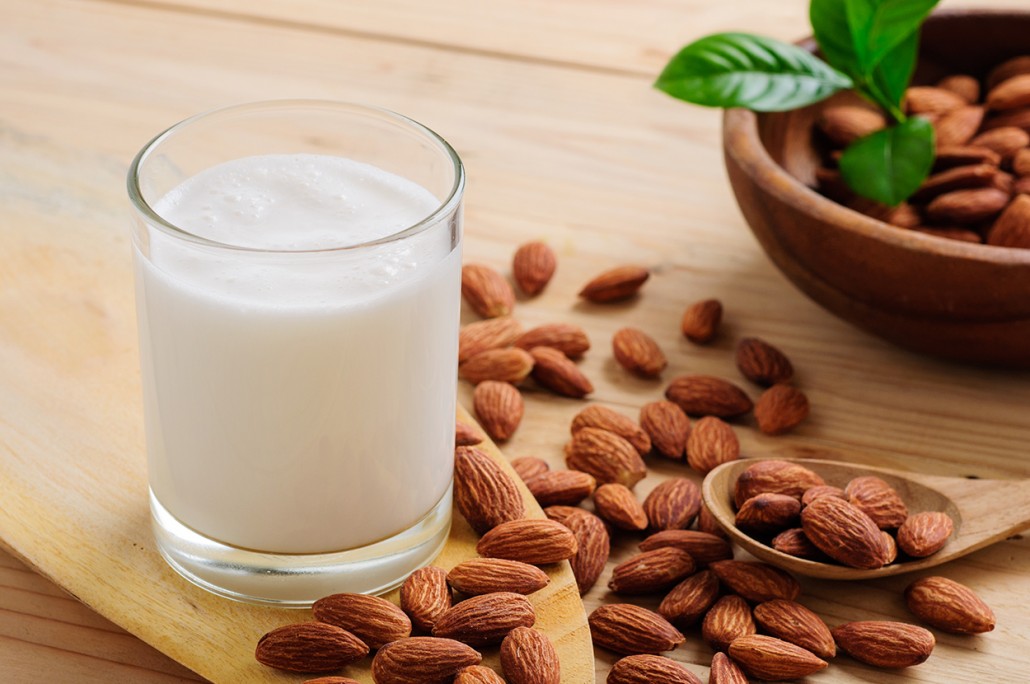Almond milk is everywhere. You pour it in your coffee, whirl it into your morning smoothies, or just drink it straight out of the bottle. Sure, it’s a little watery. But it’s made from almonds, so it must be good for you.
Not so fast. A 2017 review in the Journal of Food Science and Technology actually found that soy milk, not almond milk, was the healthiest plant-based milk. And two separate almond milk manufacturers in the US have been sued recently for misleading claims on their labels about their almond content. Mind. Blown.
That said, non-dairy milks like almond milk can play an important role in your diet. “Plant milks are a wonderful, versatile alternative to dairy milk for those that do not tolerate milk and are reducing their animal food intake for dietary choice or animal ethics reasons,” says registered dietician Sharon Palmer.
People often go for almond milk because it’s mild in flavour and easy to tolerate digestion-wise, Palmer says.
Almond milk nutrition
So is almond milk good for you? Here’s the nutritional breakdown of unsweetened almond milk, per cup:
Kilojoules: 163
Fat: 3g
Protein: 1.5g
Carbohydrates: 1.5g
Sugar: 0g
Calcium: 516mg (52% of daily value)
Compare that to what you’ll get in a cup of unsweetened soy milk:
Kilojoules: 334
Fat: 4g
Protein: 7g
Carbohydrates: 4g
Sugar: 1g
Calcium: 299mg (29% of daily value)
And what’s in each cup of 2% dairy milk:
Kilojoules: 514
Fat: 4g
Protein: 8g
Carbohydrates: 11.8g
Sugar: 12.4g
Calcium: 295g (29% of daily value)
Benefits of almond milk
First, the perks: Almond milk is low in kilojoules and fat, making it a great base for things like smoothies.
The downside is that it’s low in protein. Almond milk has only 20% of the protein you’ll get from a glass of soy milk, and 18% of what you’ll get from a glass of low-fat milk.
That’s because while almonds themselves are rich in protein, it’s completely different when they’re turned into milk. “Few almonds are in each serving,” says Palmer (in some cases, they make up just 2% for the whole drink, according to Business Insider).
However, some almond milks are protein-fortified, meaning they have added pea protein in the mix to give the drink more satiating power.
As for calcium, this will vary brand to brand – differing from 10 to 45% of your daily need, says Palmer – depending on whether or not calcium is added during fortification.
All together, “almond milk is not a very nutrient-rich plant milk compared to soy, which is very nutritionally similar to dairy milk,” Palmer says. “Soy milk has always been the nutrition gold standard for plant milks because of its rich protein content,” she adds.
So should you drink it?
If you go for plant-based milks on occasion and not as a main source of nutrients like calcium or protein, then almond milk is totally fine, says Palmer.
“But if you rely on plant milks as an important part of your diet – if you’re a vegan or avoiding all dairy – choose one that’s nutrient-rich and fortified to provide you with a good source of protein, calcium and vitamin D,” she says.
All that to say: read the label and choose wisely.
Written by: Jessica Migala
Fuente: www.health24.com
